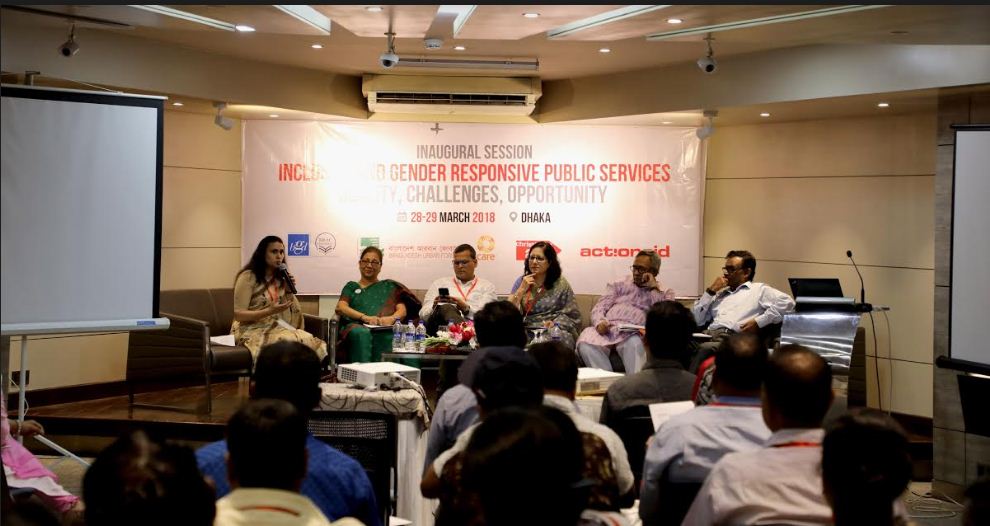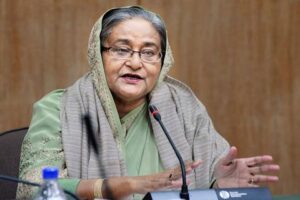Urban poverty, caused by rapid urbanisation for economic opportunities, has taken a serious turn in the country that requires an immediate attention, says ActionAid Bangladesh on Wednesday.
With significant achievement in poverty reduction, the country’s poverty reduction strategy focuses on rural poor, it says.
The organization came up with the observation with other partner organisations in a paper titled ‘Gender Responsive Public Services: Way forward for inclusive growth’ that was presented in a programme in the city on Wednesday.
Large urban populations live in informal settlements characterised by limited access to basic services, substandard housing and unsanitary conditions, the paper reads.
Urban transport, a key feature of urban centres, is the lifeblood and mobility is linked to economic development.
Yet, for a city like Dhaka, a baseline survey report for ‘Safe Cities’, 84 percent of women surveyed consider transport system unsafe and have reported that they experienced derogatory comments, unwanted touch, obscene language etc, the paper reads.
The prevailing ‘whole society’ approach to development is a recognition of the growing inequality, and the Sustainable Development Agenda presents ample opportunity to address it, it said.
“However, until we recognise that public services should address gendered practical and strategic needs, a section of the community will continue to be marginalized,” the paper reads.
They demanded gender budgeting through grassroots’ women’s representation and participation.
The service delivery should have legally binding mechanisms such as social audit, citizen’s charter to increase accountability of public services, they said.
The civil society organisations have found that women living in poverty often see access to public services as an important route to better lives for themselves and their communities and all too often the lack of gender-responsive public services is a source of inequality and barrier to excluded and marginalised women to enjoy their rights.




